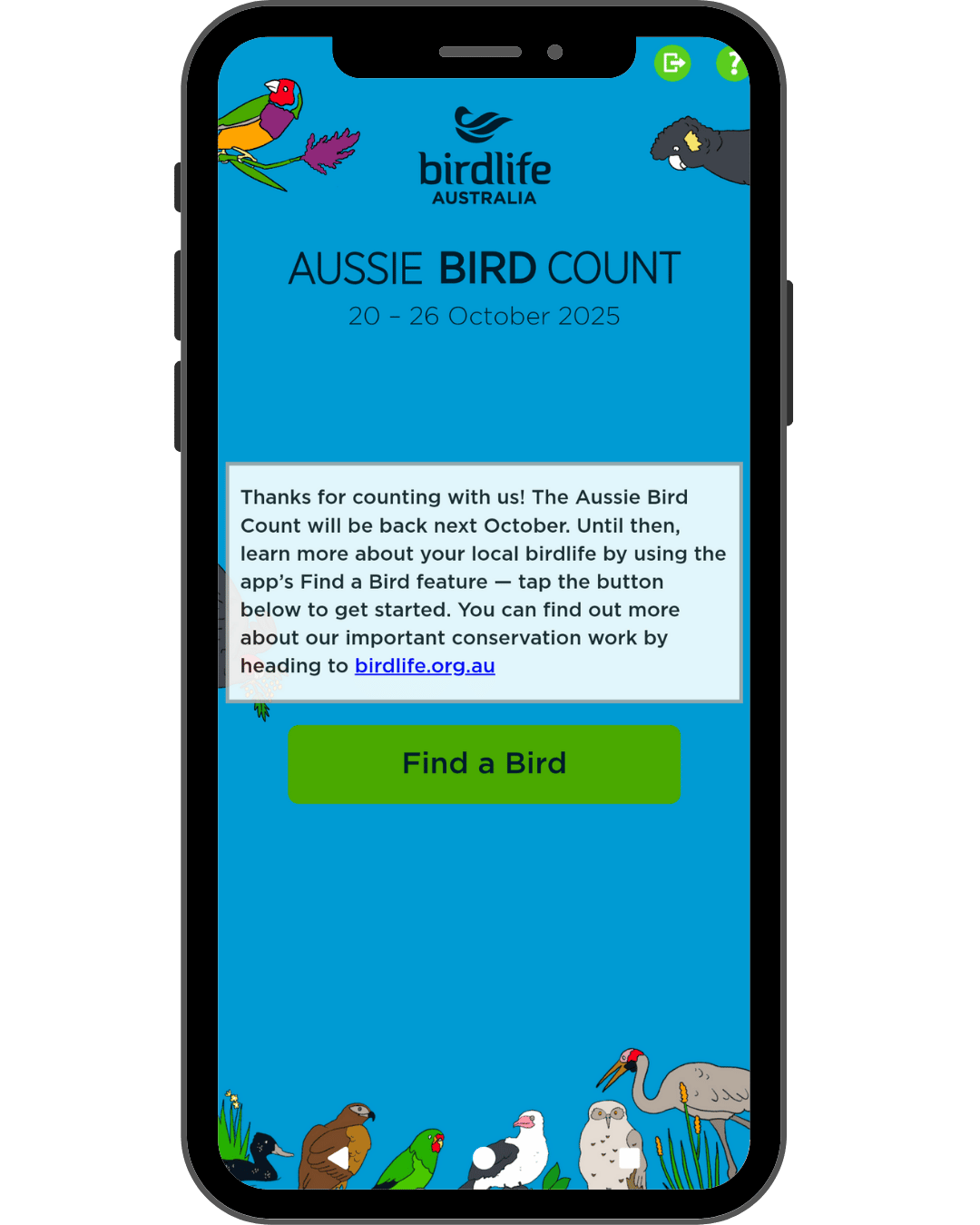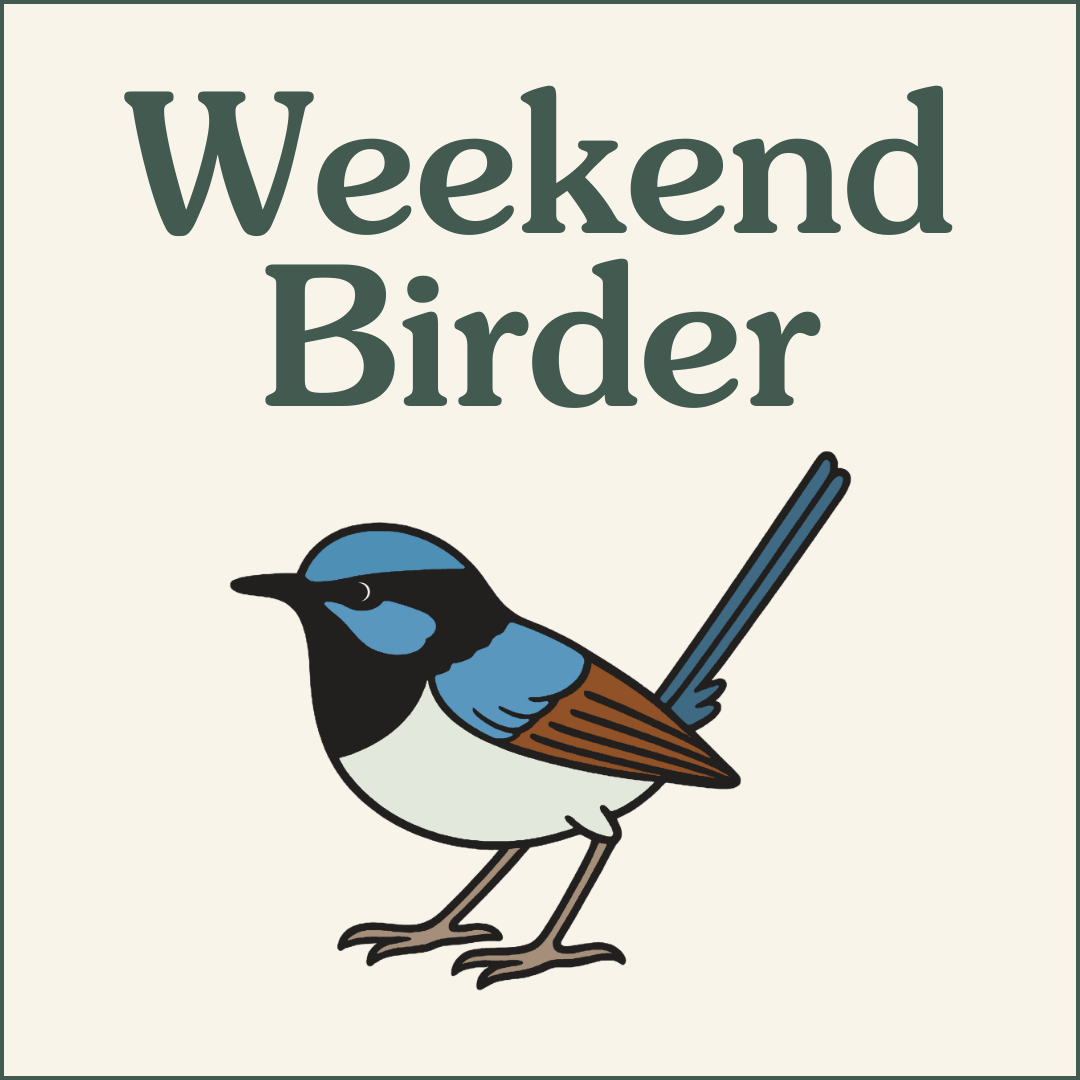This guide shows you how to use bird citizen science apps to record your sightings, explore local hotspots and contribute to conservation. This guide introduces the most useful bird citizen science apps for Australian birdwatchers and shows you how to use them ethically.
Bird ID Apps
Why citizen science apps?
There are hundreds of birdwatchers out observing birds each day, but until a sighting is recorded, it isn’t part of the bigger picture. Citizen science apps help turn your everyday observations into useful conservation data.
These apps are especially useful for:
Tracking species over time - showing how bird populations change year-to-year
Discovering hotspots - finding where birds are regularly being seen
Planning outings - seeing what’s active right now in your local area
Supporting research - contributing to national and global databases used by scientists
Citizen science is for everyone, whether you’re a beginner or an experienced birder.
Aussie Bird Count
Aussie Bird Count is a free, fun and friendly way to practise your bird ID skills and start contributing to bird conservation. Run by BirdLife Australia every October, all you need is 20 minutes and the app, which is:
Easy to use
Suitable for all ages
Helps track urban and regional bird species
Works well for backyards, playgrounds and parksca
Can be used outside of Aussie Bird Count time to help with bird ID
eBird
eBird is a free app created by the Cornell Lab of Ornithology and is part of the world’s largest citizen science program. The data collected is used by birdwatchers, researchers and conservationists. Here’s how it works:
Log your bird lists while you’re out in the field
Explore hotspots to find great local birding locations
See which species are being recorded near you
Check seasonal patterns and migration timing
Syncs with the eBird website for maps, graphs and personal stats
Syncs with Merlin Bird ID for easy bird identification
Helps you keep a digital lifer list
Data entry is best for intermediate and advanced birders, but can be used by beginners too - simply enter the birds that you can confidently identify.
Birdata
Birdata is BirdLife Australia’s free citizen science program and accompanying app. By submitting your sightings to BirdLife Australia’s national bird monitoring program, you are helping to support bird conservation.
Use it for:
Incidental sightings
Standardised surveys (like 2 hectare, 20 minute counts)
Site-based monitoring
Tracking sick, injured or dead birds
This app is perfect for experienced birdwatchers, people monitoring a local patch, conservation volunteers and ecological surveys. If you would like to get training on the app, you can enjoy BirdLife’s free online course and/or find your local BirdLife group.
Using apps ethically
Bird citizen science apps are most powerful when used with care. Responsible data collection helps protect birds and maintains the integrity of the datasets.
Sharing sightings:
Avoid posting exact nest locations
Obscure locations for rare or sensitive species
Only submit birds you feel confident about (it’s OK to leave something unidentified)
In the field:
Keep a respectful distance – your presence should never disturb the bird
Stick to paths and avoid trampling sensitive habitat
Don’t use playback (bird recordings) to “flush out” a species for your list
Every list you submit becomes part of a national or global dataset used by researchers, conservation groups and government agencies. Honest, careful records make a real difference.
For more information, visit our page on Birdwatching Ethics.
More support
We’ve got a guide for bird ID apps or check out our other birdwatching guides.
Podcast episodes
Learn more about birdwatching apps with these Weekend Birder episodes:




